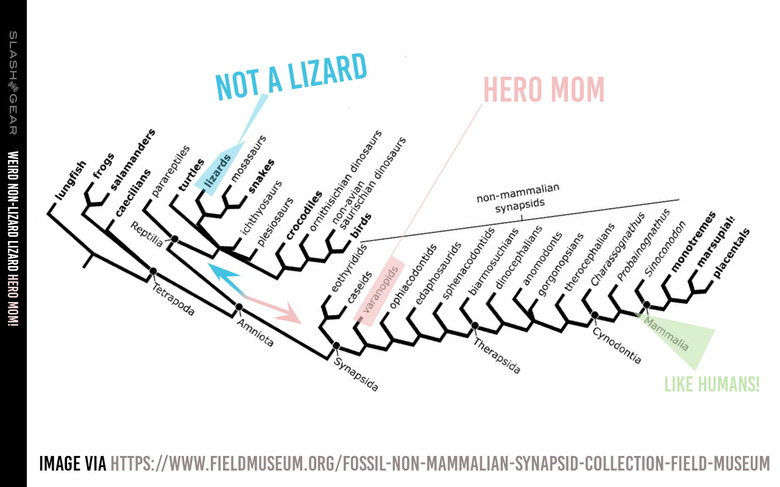Researchers Show Parenting Is 40 Million Years Older Than Previously Thought
The creature called Dendromaia was discovered with a younger Dendromaia wrapped around it in fossil form. The fossil pair were dated to approximately 300-MILLION-years-old, making this the new eldest-known example of "parental care" in an animal on our planet Earth. Per research on this find, this puts parental care in animals approximately 40 million years BEFORE the otherwise eldest proof of this characteristic. This is now the eldest-known caring parent ever found.
Researchers from Carleton University in Ontario, Canada published a study on this pair of ancient creatures in Nature Ecology & Evolution volume 4, pages 50–56 (2020). The study shows evidence of parental care "approximately 40 million years earlier than the previous earliest record based on a varanopid from the Guadalupian (middle Permian) period of South Africa."
The process of creating Dendromaia went through a few revisions, here a re a few bts sketches to get the feeling for the final painting. If you have a prehistoric critter you want brought back to life, you can email the address in my bio for inquiries and a quote! #SciArt pic.twitter.com/mYrzQ30DY6
— Hank Sharpe (@Paleoartologist) December 23, 2019
The partial skeleton of this lizard showed its tail wrapped around a smaller iteration of the same species. This position shows what's most likely a "denning" position, protecting the younger creature in the area where the pair were discovered. Evidence suggests that this pair's position was one of care at the moment of death.
The specimen showed signs that parental care of this sort might well be older still than this specific proof. This specimen also "adds to growing evidence that parental care was more widespread among Palaeozoic synapsids than previously thought."
This lizard pair was part of the family of creatures called Varanopid. These things didn't evolve into the lizards we know today – instead, they existed in the non-mammalian synapsids collection.

Tetrapods split into Reptilia (which eventually splits down into lizards, snakes, birds) and Synapsida (which eventually splits down into varanopids and a bunch of others before mammalia. So really, this lizard is a closer relation to us humans than it is to what we think of today as lizards. Sorry, common iguana!
For more information on this study, read "Varanopid from the Carboniferous of Nova Scotia reveals evidence of parental care in amniotes" as authored by Hillary C. Maddin, Arjan Mann, and Brian Hebert. This research can be found with code DOI: 10.1038/s41559-019-1030-z from Nat Ecol Evol 4, 50–56 (2020).
